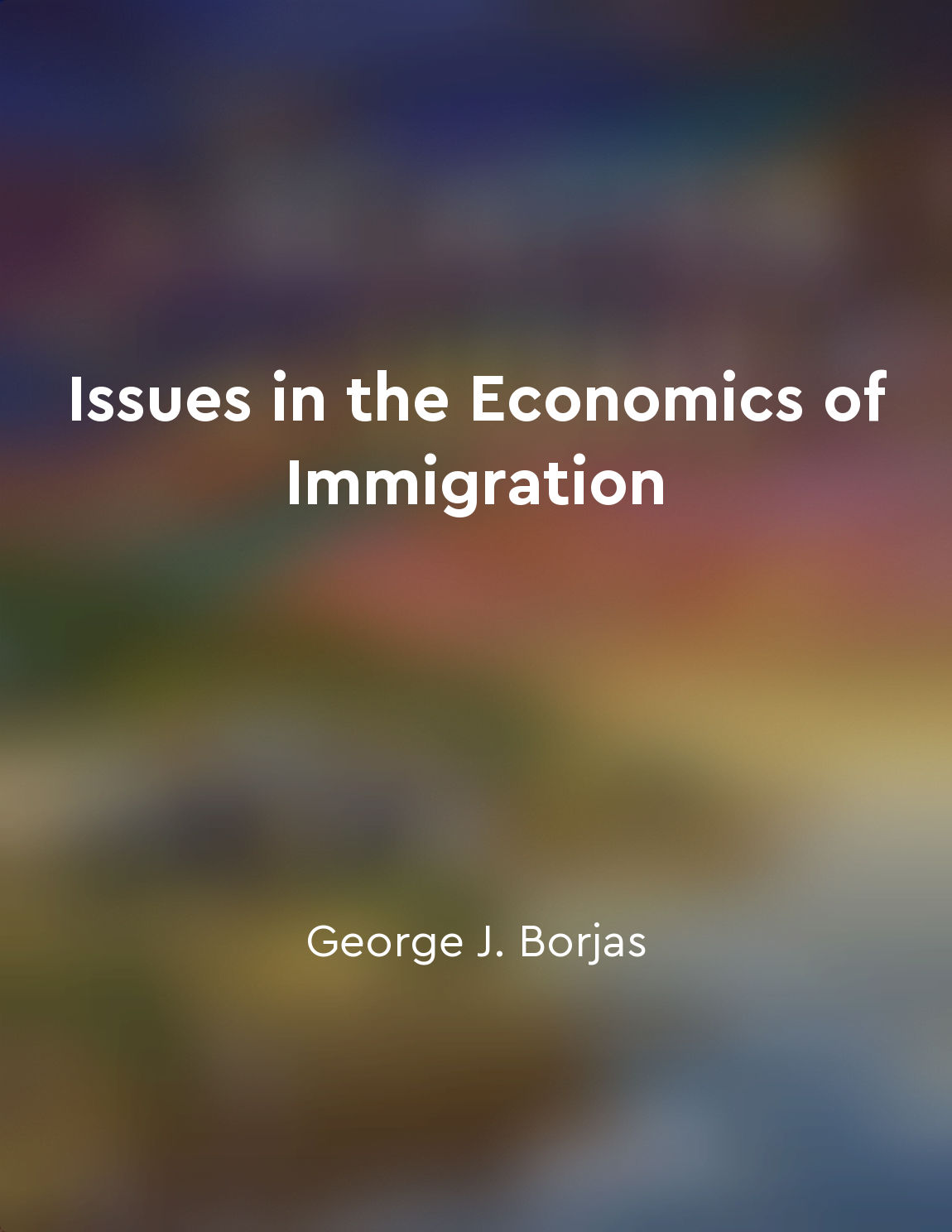Migration as a key issue in contemporary politics from "summary" of The Origins of Political Order by Francis Fukuyama
Migration has become a critical issue in contemporary politics due to various factors such as economic globalization, conflict, climate change, and demographic shifts. The movement of people across borders has stirred debates and controversies, as it challenges the traditional notions of citizenship, national identity, and sovereignty. Globalization has intensified the flow of goods, services, and information across nations, leading to increased migration for labor, education, and better opportunities. This has created tensions in host countries, as native populations fear competition for jobs and resources from immigrants. Conflicts and instability in regions such as the Middle East and Africa have forced millions of people to flee their homes in search of safety and security. This has resulted in a humanitarian crisis, with countries struggling to accommodate and integrate large numbers of refugees and asylum seekers. Climate change has also become a driver of migration, as rising sea levels, extreme weather events, and environmental degradation displace communities and threaten livelihoods. This has sparked debates on climate refugees and the responsibility of countries to provide refuge to those affected by environmental disasters. Demographic shifts, such as aging populations in developed countries and youth bulges in developing nations, have further fueled migration trends. The need for labor, skills, and innovation has led countries to attract foreign workers and students to fill gaps in their economies and societies. In response to these challenges, governments have implemented various policies to manage migration flows, including border controls, visa restrictions, and asylum procedures. However, the effectiveness and ethics of these measures have been questioned, as they often result in human rights violations, social tensions, and political backlash.- Migration has become a complex and controversial issue that tests the values and capacities of states, societies, and international institutions. It requires a delicate balance between security and compassion, identity and diversity, sovereignty and solidarity. As the world becomes more interconnected and interdependent, the management of migration will continue to shape the political landscape and define the future of global governance.
Similar Posts
Partition led to the creation of India and Pakistan as separate nations
The partition of India in 1947 resulted in the creation of two separate nations, India and Pakistan. This monumental event mark...
Collective action necessary for societal protection
The transformation of society into a market economy necessitates the need for collective action to protect the social fabric fr...
Their journey was both physical and emotional
The migrants who left the South in search of a better life faced not only the physical challenges of traveling long distances b...
The voices of displaced girls must be heard
The world often overlooks the voices of displaced girls. They are marginalized, their stories silenced by the chaos of war and ...
Balancing individual rights with collective wellbeing is essential
For any society to thrive over the long term, its members must strike a delicate balance between their individual desires and t...

Empires rise and fall due to human actions
Throughout history, empires have come and gone, leaving behind a trail of triumphs and tragedies. What might seem like the inev...

Immigrants tend to have different skills and abilities than nativeborn workers
The skills and abilities possessed by immigrants often differ from those of native-born workers. This disparity in human capita...
Race and ethnicity impact opportunities
The opportunities available to individuals are not solely determined by their individual qualities or efforts. Race and ethnici...

